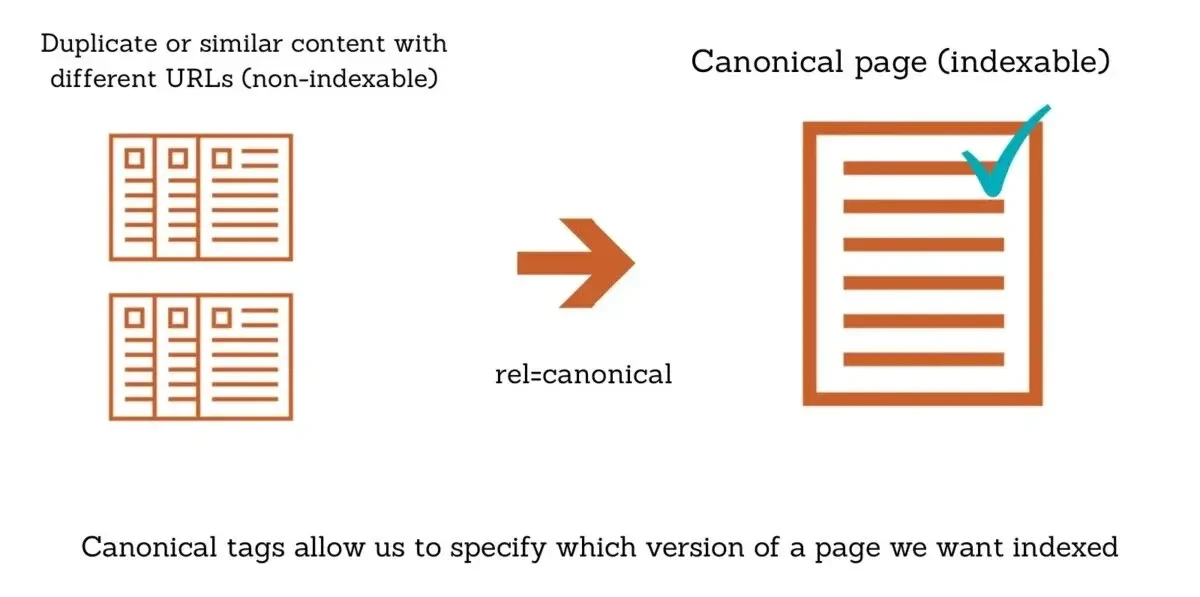
In the vast landscape of digital marketing and search engine optimization, you've probably come across the term "URL canonicalization" or "canonical tags." But what exactly does it mean, and why is it crucial for your website's SEO? In this article, we'll demystify URL canonicalization, explain its importance, and guide you on how to use the canonical tag properly to enhance your website's performance in search engine rankings.
To comprehend URL canonicalization, let's start with the basics.
URL canonicalization is the process of selecting the best-performing URL when multiple URLs point to the same or similar content. It's about establishing a single, preferred URL to avoid content duplication and ensure search engines understand which version to index.
URL canonicalization matters because duplicate content can confuse search engines, leading to lower rankings or even penalties. By specifying a canonical URL, you guide search engines in displaying the right page in search results.
Canonical tags are a practical tool for implementing URL canonicalization.
Canonical tags are HTML elements that communicate to search engines the preferred version of a URL when there are duplicates or similar pages.

These tags are placed in the head section of a webpage's HTML and include the URL of the preferred version. Search engines respect these tags and consolidate the ranking signals for that URL.
Not every webpage needs canonical tags, but there are specific scenarios where they're essential.
Now that we understand why canonical tags are vital, let's explore how to use them effectively.
While canonical tags are a valuable SEO tool, they can lead to problems if used incorrectly.

Implementing URL canonicalization correctly brings several SEO benefits.
URL canonicalization, backed by the proper use of canonical tags, is an essential aspect of SEO. It helps search engines understand your website's content hierarchy, reducing the risk of duplicate content penalties and strengthening the ranking signals of your preferred pages. By mastering the art of URL canonicalization, you can enhance your website's visibility and provide a smoother user experience. So, take the time to implement canonical tags correctly, and watch your website rise in the ranks of search engine results.
1. What is URL canonicalization, and why is it important for SEO?
URL canonicalization is the process of specifying the preferred version of a URL to prevent duplicate content issues. It's crucial for SEO because it helps search engines understand which version of a page to index, improving rankings.
2. How does URL canonicalization benefit website owners?
URL canonicalization benefits website owners by avoiding duplicate content penalties, consolidating ranking signals, and enhancing the overall SEO performance of their site.
3. What are canonical tags, and how do they work?
Canonical tags are HTML elements that indicate the preferred URL version. Search engines use these tags to identify the canonical page and avoid confusion with duplicate content.
4. When should I use canonical tags on my website?
Use canonical tags when you have duplicate or similar content across multiple URLs, such as pagination, product variations, or tracking parameters.
5. How do I implement canonical tags correctly?
To implement canonical tags correctly, identify the canonical URL, add the tag to non-canonical pages, and ensure consistency in tagging across your site.
6. What are the common mistakes to avoid when using canonical tags?
Avoid self-referencing canonicals, inconsistent tagging, and specifying non-existent pages as canonical. These mistakes can lead to SEO issues.
7. What happens if I don't use canonical tags for duplicate content?
Without canonical tags, search engines may index multiple versions of the same content, potentially causing ranking and visibility problems.
8. Can canonical tags be used for cross-domain canonicalization?
Canonical tags are primarily used within the same domain. For cross-domain canonicalization, it's best to use 301 redirects or rel="canonical" HTTP headers.
9. Are canonical tags the only solution for duplicate content issues?
While canonical tags are a valuable solution, other methods like 301 redirects or meta robots tags can also address duplicate content effectively, depending on the situation.
10. How can I monitor the effectiveness of canonical tags on my website?
Monitor canonical tags' effectiveness through Google Search Console and regularly review your site's SEO performance to ensure that duplicate content issues are resolved.







































